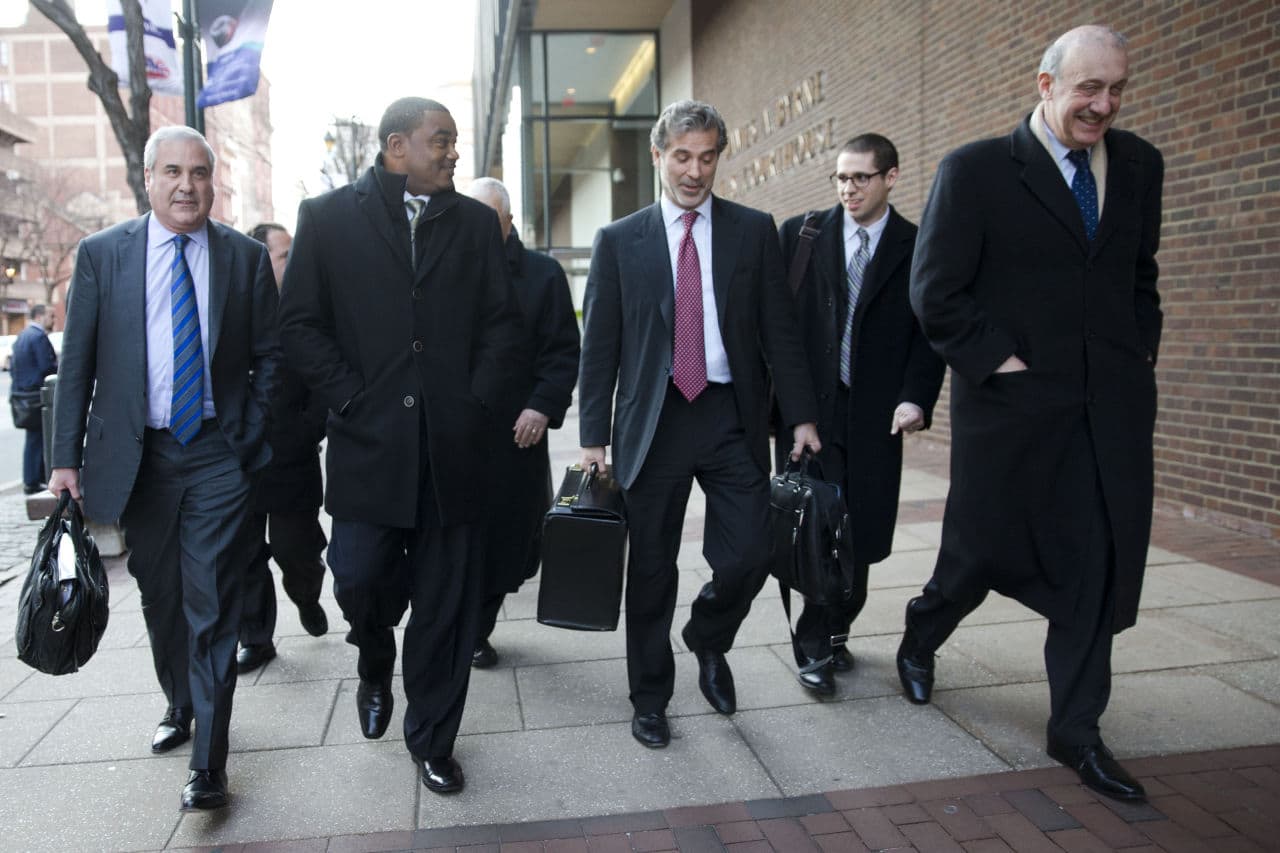Advertisement
Making Sense Of The NFL's Concussion Settlement
Resume
This week, a federal judge approved a settlement between the National Football League and more than 5,000 former players who had sued the league. The agreement is expected to cost the NFL about $1 billion over 65 years and will compensate former players suffering from various medical conditions. The agreement was originally reached in August of 2013, but Judge Anita Brody twice asked the two sides to make revisions.
Michael McCann is the director of the Sports and Entertainment Law Institute at the University of New Hampshire. He's also a regular contributor to Sports Illustrated. He joined Bill Littlefield on Only A Game.
BL: How does the agreement differ from the one that was originally struck?
MM: The main difference, Bill, is that there's more money available for players, and there's more certainty for the methods that will be used to determine how much each player gets. So, there's more certainty about methodology, and the pool of money appears to be considerably larger, although many would say, "not enough." It looks like there will be more money available for the retired players.
BL: While the players’ cases differ widely, can you walk us through the process and what a likely outcome for a qualified player might be based on this agreement?
MM: My understanding is that it will vary greatly as to what disability the retired player can show. Some of the more serious neurological, degenerative diseases are going to lead to certainly higher healthcare costs, and thus more money from the settlement — perhaps millions of dollars for healthcare costs. Whereas retired players who are not showing those types of serious ailments might be looking more in the ballpark of $100,000 over ... the remainder of their lives. So, it will depend greatly on the illnesses that befall retired players as to how much money they'll likely receive from the settlement.
BL: There is no cap on what the league pays former players for concussions, dementia and Alzheimer’s Disease. But you wrote in January that chronic traumatic encephalopathy is the problem that’s “most under-served” by the settlement. Is that still a concern?
[sidebar title="Complete Concussions Coverage" width="630" align="right"]Since our debut in 1993, OAG has tracked the latest information and research on sports concussions.[/sidebar]MM: It still is a concern. There are many health advocates who believe that CTE will remain underfunded — that the inability or lack of certainty as to showing it exists and its relationship to football continues to pose a problem, so I think there is a healthy amount of skepticism about whether or not the settlement will adequately reach all of the individuals that really need it.
That said, there's certainly evidence suggesting that it will reach many retired players, and it will give many of them a significant amount of money quickly as opposed to waiting many years to litigate, where the outcome would be uncertain and in some cases, some of the players — retired players — would pass away if the litigation had played out over the next three to five years.
BL: What about other injuries? What else is covered in this settlement, say somebody can't walk because of a spinal injury, or something like that?
MM: Spinal injury would be covered because it remains a neurological problem, and it's expected that other retired players who suffer all sorts of injuries will be able to get better treatment through the settlement. But, clearly, the intended beneficiaries of the settlement are those suffering from the more serious, degenerative, neurological problems.
BL: About 200 players have opted out of the settlement. What is their motivation and what's likely to happen with them?
MM: I think the prevailing thought is that many of them feel like the settlement is not enough, that not enough money will be available to pay for health treatment. And I think there are some retired players who believe the NFL should be held accountable — that they believe that the league is at fault, and that a settlement is a way of evading taking full responsibility. Now, the Player's Association could also be at fault as well, because they agreed to the terms that did not lead to adequate safety for players.
But that said, what will happen with them, they will pursue their own cases. And, it's possible their own cases may prevail, but I think there's reason to think that the NFL's number of strong defenses — including the idea of preclusion, that the players association agreed to contractual terms that retired players are bound by, that prevent the players from successfully suing — there's also questions about causation, when did a player get hurt? Before a player goes to the NFL, he's had thousands of plays. So, what remains to be seen, what will happen with the players who opted out, they may be vindicated, but they're certainly taking a chance.
BL: Will the settlement announced Wednesday be appealed and, if so, would that delay payment to injured former players?
MM: Yeah, it does appear as if there will be an appeal filed by some individuals who are not satisfied by it. Really, at that point it depends on how the federal court treats the appeal. Will it be considered an appeal that delays entire implementation, or are there more narrow issues that are being appealed that will allow implementation of other aspects of the settlement that are agreed to? It remains to be seen exactly what the appeal was about.
This segment aired on April 25, 2015.